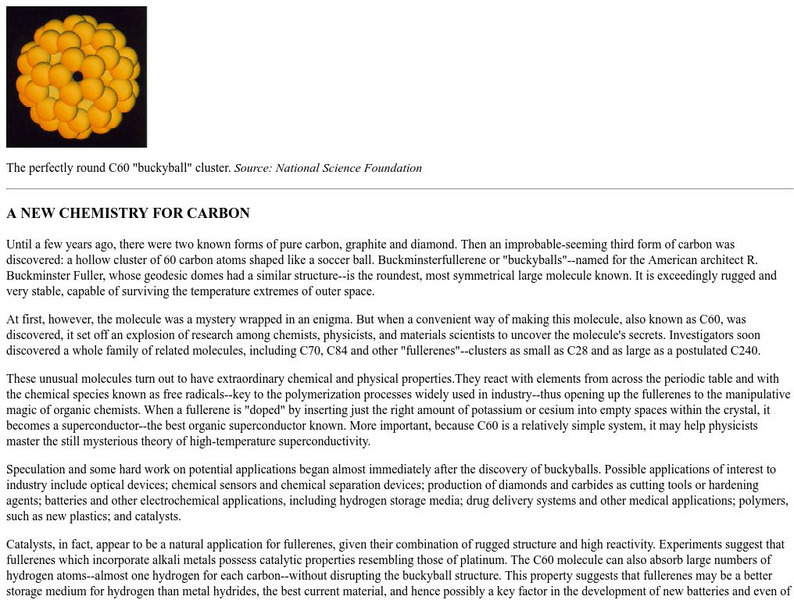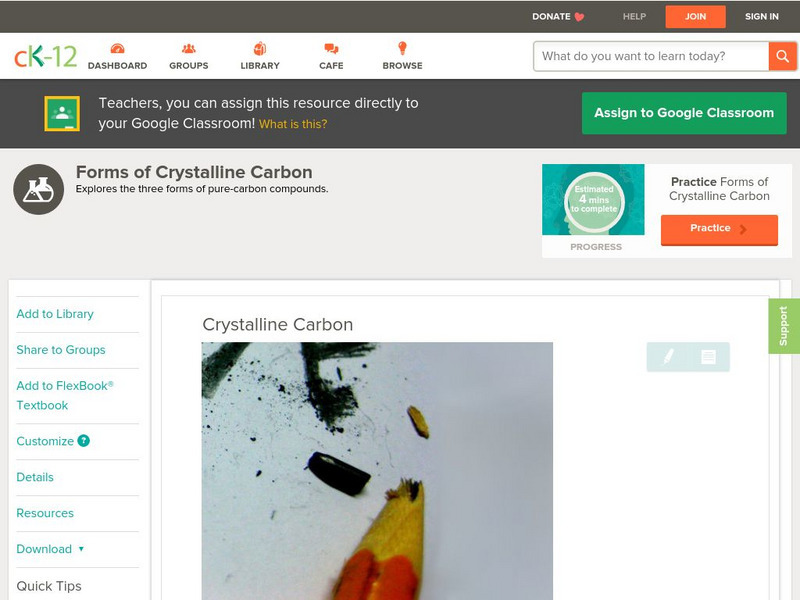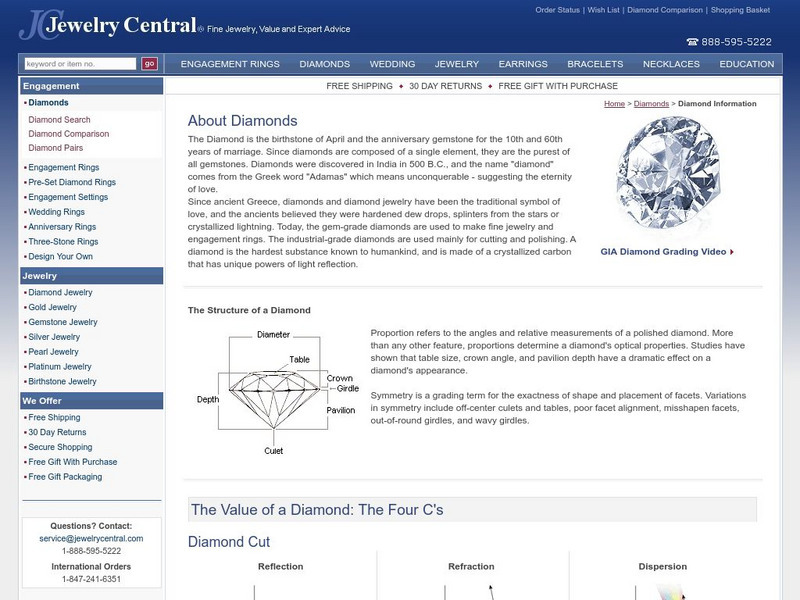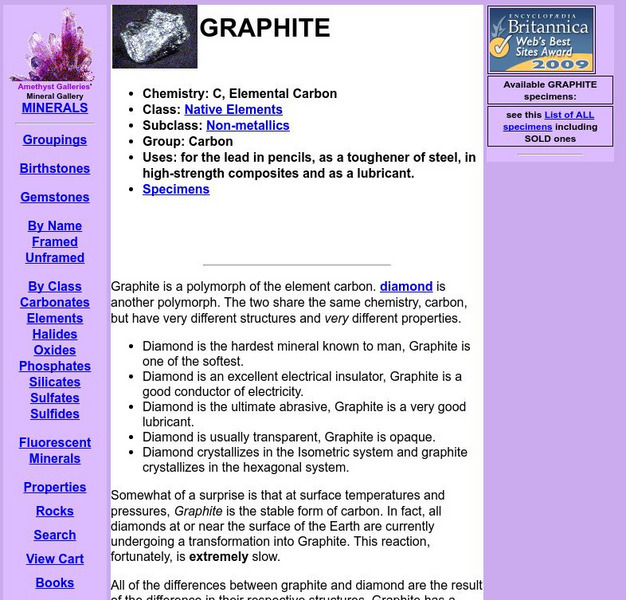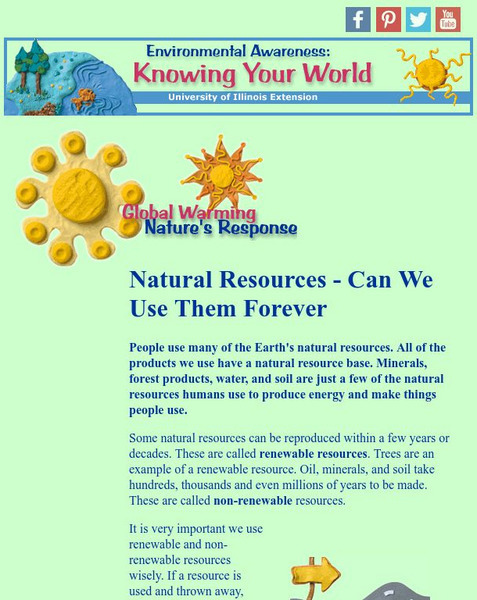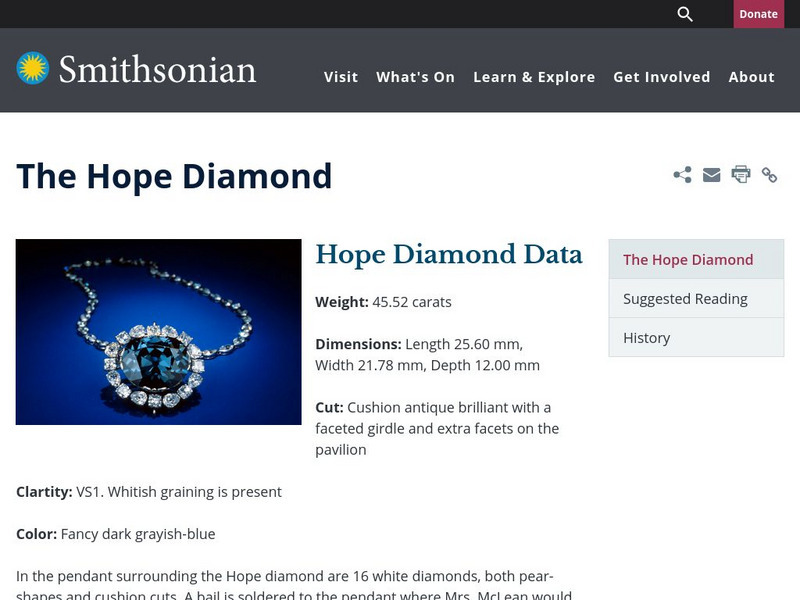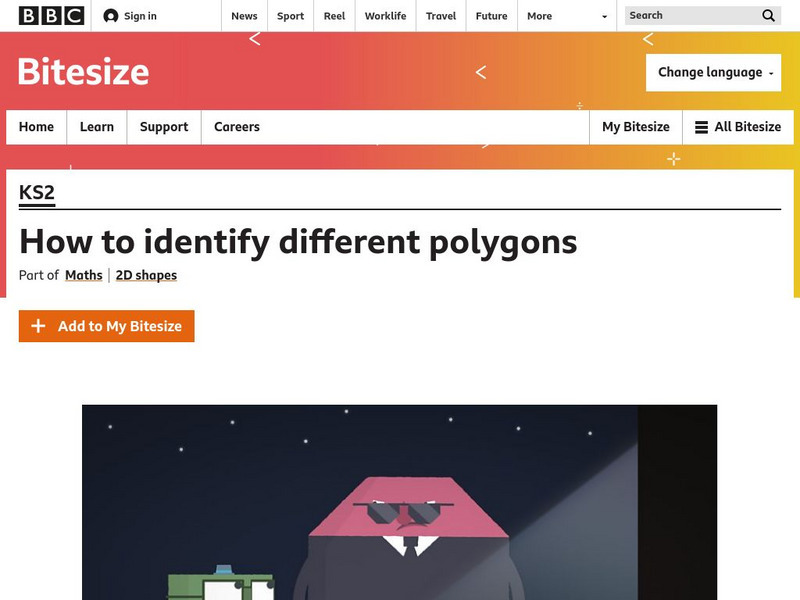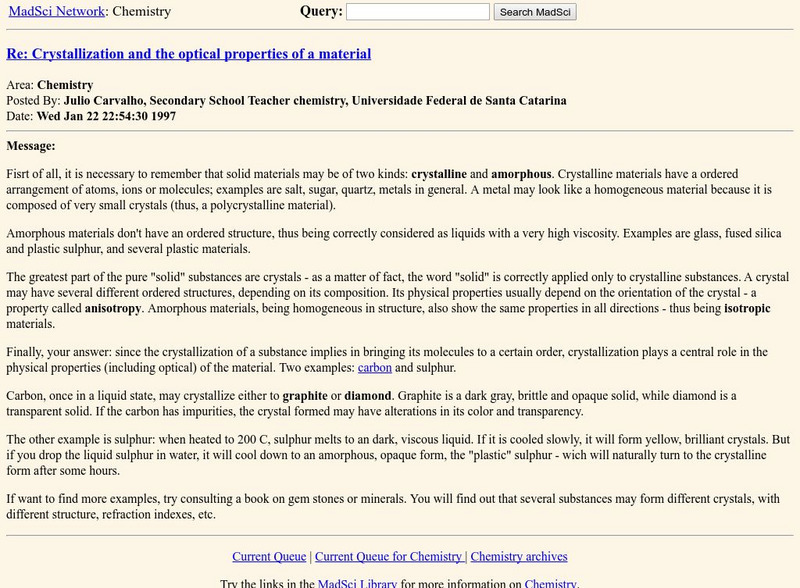Other
Scienceviews.com: Minerals and Their Uses
Every segment of society uses minerals and mineral resources everyday. The roads we ride or drive on and the buildings we live learn and work in all contain minerals. Below is a selected list of commonly used metallic and nonmetallic...
Other
The Buckyball: An Excruciatingly Researched Report
A very detailed summary of fullerenes, their discovery, and current uses. Details some current research and potential applications. Details on R. Buckminster Fuller.
US National Archives
Nara: A New Chemistry for Carbon
This National Archives and Records Administration site describes the discovery of fullerenes, a new allotrope of carbon. The chemical properties of fullerenes, their uses, and possible potential as catalysts or superconductors is mentioned.
Smithsonian Institution
National Museum of Natural History: The Splendor of Diamonds
A collection of seven rare diamond types, among the most valuable in the world. All but one is a unique color, and each has a special title. Read a short descriptive history of each diamond.
Jewelry Central
Jewelry Central: Gemstones
This commercial site contains general information on various synthetic and natural gemstones and provides links to specific gems.
Read Works
Read Works: Hard Minerals
[Free Registration/Login Required] An informational text Crater of Diamonds State Park in Arkansas and the diamonds visitors can find there. A question sheet is available to help students build skills in reading comprehension.
CK-12 Foundation
Ck 12: Physical Science: Crystalline Carbon
[Free Registration/Login may be required to access all resource tools.] Discusses different crystalline forms of carbon and their molecular structure.
Smithsonian Institution
National Museum of Natural History: The Splendor of Diamonds
Describes past exhibition of some of the finest gems in the world, this collection of precious diamonds includes several rare and valuable stones.
Sophia Learning
Sophia: Earth Sciences: Carbon Allotropes: Coal to Buckyballs
Created to teach students of the 21st century, SOPHIA is bringing carbon allotropes straight to your fingertips. Become the commander of your own learning experiences with this slideshow.
Amethyst Galleries
Amethyst Galleries: The Mineral Diamond
This resource provides information on diamonds, such as physical characteristics, and physical properties.
Amethyst Galleries
Amethyst Galleries: Physical Characteristics of Minerals
The properties of minerals are defined in this resource, such as color, luster, cleavage, hardness, streak, and more. Included are pictures of minerals along with detailed descriptions. You can also search for minerals by name, class, or...
Jewelry Central
Jewelry Central: Diamond
Discusses in detail the grading of diamonds, as well as briefly discussing their structure, physical properties, and historical background. Accompanied by clear illustrations.
Amethyst Galleries
Native Elements Class: Graphite
Description of graphite and its basic properties. Also a comparison to diamond and how they differ.
University of Illinois
University of Illinois Extension: Schools Online: Knowing Your World: Natural Resources
This brief article emphasizing the importance of renewable and non-renewable resources urges readers to appreciate and not waste the earth's natural resources. Following the article, there is an activity, a "Mineral Search," through...
Smithsonian Institution
Encyclopedia Smithsonian: The Hope Diamond
Detailed description and history of the Hope Diamond, a large deep-blue diamond housed in the National Museum of Natural History in Washington, D.C.
Science Struck
Science Struck: How Does Coal Become a Diamond?
This article looks at the properties of coal, graphite, and diamonds, all of which are made from carbon, and explains why they are different. The formation of diamonds inside the Earth is described, and the theories around whether or not...
BBC
Bbc: Gcse Bitesize: Properties of Materials
This lesson focuses on the properties of carbon atoms in diamonds and graphite including their structures and bonding and their properties and uses. It also provides links to a video and an assessment.
Science Struck
Science Struck: Well Known Uses of Carbon
Discover the wide variety of ways we use carbon as well as its three allotropes that are found in the natural world - graphite, diamonds, and amorphous carbon.
Utah State Office of Education
Utah State Office of Education: Identifying and Classifying Minerals
This thorough Utah State Office of Education site explains the criteria for identifying minerals and provides pictures of various minerals.
BBC
Bbc: Bitesize: Maths: 2 D Shapes
Learn about the properties of 2-D shapes: circles, triangles, polygons, and quadrilaterals. Includes information, video, and examples about each, with games and quizzes for reinforcement.
Other
Chemistry 1341 Lecture Notes: Inorganic Carbon Compounds
The forms of inorganic carbon are discussed in terms of their hybridization, stability, reactivity, and uses.
Burke Museum
Burke Museum: Birthstones: Myths and History
As part of the Burke Museum's site on Geology, this page details the birthstones for each month and discusses both the myth and the history behind birthstones.
Geometry Help
Geometry Help: Rhombus
Explains the basic concept of a rhombus with step-by-step instructions and methods for solving specific problems on your own relating to this topic.
MadSci Network
The Mad Scientist Network: Chemistry
Using a question and answer format, this page addresses the question: "What effect may crystallization have on the optical properties of a material?" Crystalline and amorphous solids are compared and contrasted; their properties are...




